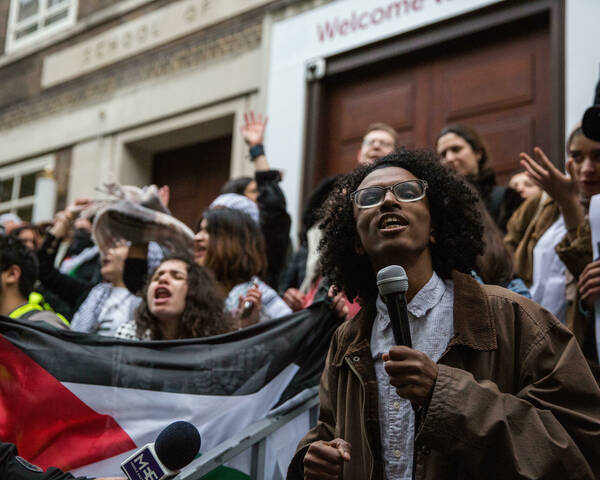Letters / On “New Report Could Hamstring Palestine Advocacy in Britain’s Largest Student Organization”
Dahlia Krutkovich’s article provides important insight into the ongoing battle over Palestine advocacy in the UK, especially the role of the IHRA definition of antisemitism. However, it misses past instances where the IHRA definition has played a key role in excluding pro-Palestinian leaders from key roles in the National Union of Students (NUS), which actually predate the definition’s use in the Labour Party.
The article notes that the NUS adopted the IHRA definition in 2017, and the Labour Party in 2018. In terms of actual usage of the definition though, research I’ve done for Independent Jewish Voices Canada’s NoIHRA campaign shows that in 2018 the Union of Jewish Students used the IHRA definition as a key part of attacks against NUS National Executive Committee member Ayo Olatunji, smears which were then republished in The Jewish Chronicle and The Tab, leading to his eventual resignation. Then, in 2019, it was used again in a formal complaint against then-candidate for the same committee, Zeid Truscott, who was disqualified as a result. Similar practices only took place in the Labour Party starting in 2019, against Nikki Brennen, and against Rebecca Long-Bailey, Kate Knight, and Marika Sherwood in 2020.
While the Labour Party’s Corbyn controversies were in full swing already by 2018, (and the NUS had similar pre-IHRA Palestine-related pushback against Malia Bouattia’s presidency in 2016-17), my research has shown that concrete usages of the IHRA definition in the Labour Party seemingly followed its use within the NUS. I would argue that the common assumption that the pushback against Palestine solidarity in the UK finds some sort of origin point in the “Labour playbook” misses that these strategies were also developed, often with less public scrutiny, against primarily racialized students in the NUS. This of course only emphasizes the underlying point of Krutkovich’s article: that students in the NUS should be worried about the future of Palestine advocacy within their union.
Berlin, Germany
Dahlia Krutkovich’s article on the Tuck report is very helpful in explaining what is going on in the NUS to an international audience. However, it should be noted that it is only very recently—in the last ten years—that supporters of Palestinian rights have gained leadership positions in NUS. For many years, the union was dominated by fiercely Zionist student organizers, Jews and non-Jews alike. Many of these student organizers went on to become right-wing Labour Party politicians who were integral to the effort to undermine Jeremy Corbyn in 2018. Politicians like Wes Streeting, Lorna Fitzsimons, and Jim Murphy cut their teeth in NUS before becoming Labour MPs. The longtime right-wing control of NUS elected positions resulted in the appointment of senior full-time union staff who largely have no sympathy for anti-Zionist politics, and who remain in those positions to this day.
You can see the long-term dominance of Zionism in the NUS through its 2007 adoption of the EUMC Definition of Antisemitism. It was one of the only bodies in the UK to do so. Though the EUMC Definition fell into well-deserved obscurity, it was eventually resurrected to appear, with minimal modification, as the IHRA definition, which we see in full operation today.
London, UK
The author is the membership secretary for Jewish Voice for Labour.
